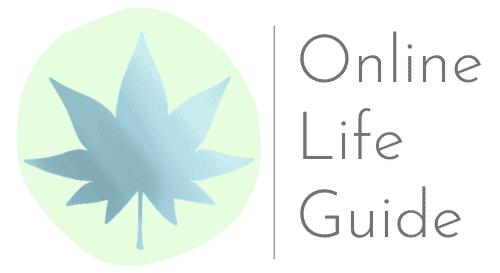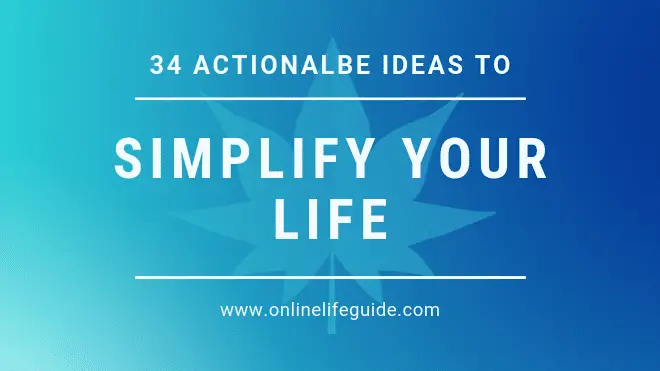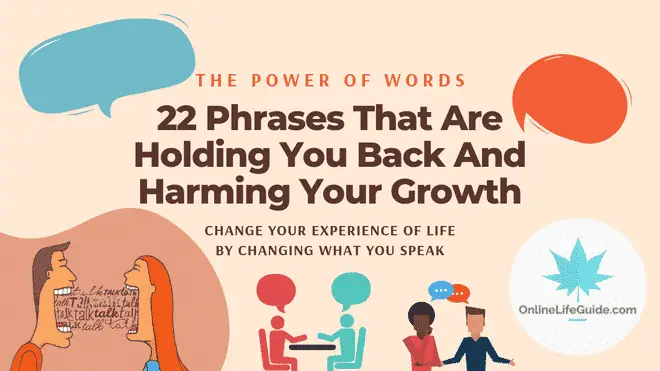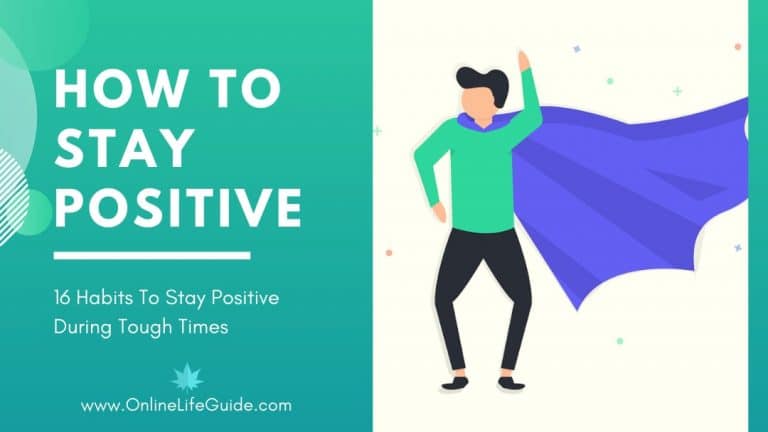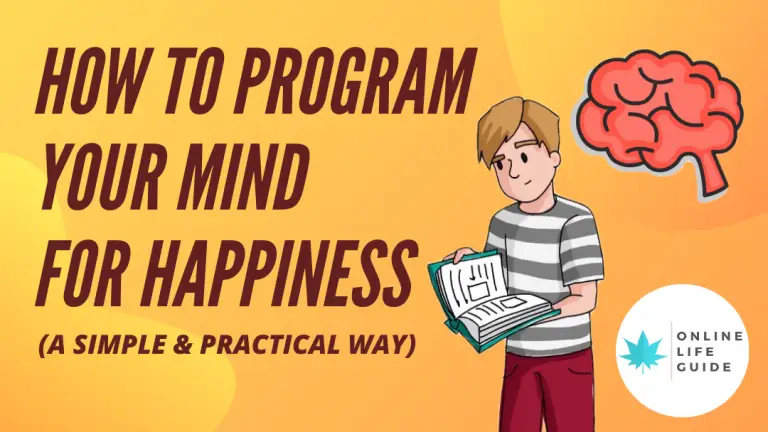The 17-Day Guide to Become Wise and Emotionally Mature

This is the core guide of the Emotional Maturity Series – a series of articles that discusses emotional maturity in depth. I will link the rest of the series at the end of this article.
In this particular guide, I have condensed years of not just personal experiences and learnings from wise people, but also the experiences of people I’ve worked with and helped through coaching, and turned it into a digestible 17 day Step-by-Step Process that will serve as your guide to mental and emotional maturity.
If you’ve been wondering how you can be more mature, wiser, and make fewer mistakes in life, this is it. Make sure to not rush through this and try to absorb the information and advice as much as possible.
How to Use This Guide to Become More Mature and Wise

First, read through the entire guide thoroughly. Then focus on ONE STEP every day. Make it your theme for the day to focus on just that one thing in your personal and professional life.
There are 17 steps total so it makes it a 17-day course.
Focusing on one step for an entire day will allow your consciousness to expand in that direction and open up your mind to wisdom and understanding of things that might have never crossed your consciousness. Not at least with that level of depth and reflection.
Ideally, I would suggest cycling through this 17-day journey a few times so that all the lessons are deeply and permanently ingrained in your thinking process. Save the link to this guide somewhere or bookmark it, so that it’s easier for you to come back to it whenever needed.
What is Emotional Maturity?

Emotional maturity is the ability of a person to handle their emotions effectively and be aware of the subtle emotional shifts that happen with external or internal stimulus.
It’s the ability to respond to difficult situations and handle different kinds of people effectively.
When you are emotionally mature, you can communicate your thoughts and emotions in a productive manner without getting into a fight or heated argument.
At times, when things do get heated, you are fairly good at calming things down and getting the situation under control.
It’s also about developing a sufficient understanding of how life works, as well as understanding the science of people which essentially means that you have a high emotional intelligence.
Emotional intelligence plays a huge role in becoming mature as a person as it allows you to not only analyze and learn from your own emotions and behaviors, but also understand the reasoning behind other people’s emotions, actions, and behaviors.
The following daily steps will help you grow your emotional maturity and tap into the wisdom that life has to offer.
17-Steps to Become Emotionally Mature

Day 1: Don’t be Afraid to Have New Experiences
The first and most important thing that you’ll find me repeating a few times throughout this guide is to HAVE MORE EXPERIENCES.
Yep, it’s as simple as that.
The more you expose yourself to new experiences, the more you open new opportunities to learn about life.
Watching or reading content on how to be more mature such as this guide will provide you the direction on how to utilize those experiences and bring more consciousness and awareness toward the workings of your mind.
However, this will only be truly useful when you implement the steps by gathering experiences and practicing the principles over and over again.
I have known people who have confined themselves to a specific environment and specific set of people, and no matter how much they age physically, they remain stuck in the same immature way of thinking and behaving.
Honestly, I have been in that phase of isolation and confined experiences myself, and I can say that it literally atrophies your mind.
Your thinking capacity shrinks. Your social skills deteriorate. Your ability to handle stress decreases greatly.
All the factors that contribute to one’s maturity gradually become compromised.
So if you are in such a phase where you are not being exposed to new experiences, make sure to take measures to get out of this phase as this will rot you mentally, emotionally, physically, and spiritually.
Action to Take:
Try something new today. Anything that you haven’t experienced before. Make sure it’s a bit out of your comfort zone.
Day 2: Keep Interacting with New People That You Don’t Know
Part of gaining new experiences is interacting with new people. Our mental/emotional maturity grows the more we develop an understanding of people.
This can be as simple as interacting with the person standing with you in a waiting line, or the one sitting beside you at a cafe.
Do you use public transport to get to work? Try interacting with someone sitting next to you.
Going to a shop or a store to get something? Try initiating small talk with the person at the counter.
It will feel awkward at first and the interactions might be very brief, but you’ll grow comfortable and get a hang of it. Eventually, it won’t feel as scary or intimidating to interact with a stranger.
When you interact with new people, you not only get to know a new person, but you also get to know something new about yourself.
How we interact with people is often a reflection of who we are deep within.
Different kinds of people will reveal different aspects of yourself, and you’ll be surprised to see the untapped, unexplored side of you.
A lot of the things that you thought about yourself will shift. You’ll realize some of your undiscovered strengths, and you’ll also realize where you are lacking and which areas need improvement.
Action to Take:
Interact with a stranger sitting/standing next to you in public. Start a casual conversation. Do some small talk.
Day 3: Embrace Change
The fact is, most of us just simply avoid drastic changes in our lives.
We might feel that we are open to change, but when the change comes with all its bells and whistles and all the tangents attached, we find it hard to digest.
The reality is that most of the progress and growth in life lies behind embracing changes in the positive direction, letting go of certain aspects of the life we know, and growing out of the previous version of ourselves.
The more changes you create in your life, the more experiences you gather.
This expands your horizons and understanding of life making you more mature than the rest of the people who choose to live a “secure” and comfortable life.
Action to Take:
Reflect on what uncomfortable changes are you avoiding but really need to make for the betterment of your life or relationships.
Day 4: Reflect on Bad Experiences from a Neutral Standpoint Instead of an Emotional One
Avoid falling into a blaming mindset.
When we look for others to blame, we miss out on huge opportunities for growth and fortification of our character.
No matter who was at fault or how worse the situation was, always wonder what YOU could’ve done to make things better or avoid the conflict.
Even when someone else is at fault, there is always so much for us to learn about what we could’ve done to handle things better.
We cannot control other people’s actions and behaviors. What we can control is how we deal with those people and our response to their behaviors.
Action to Take:
What or who have you been blaming? Who have you been feeling resentful toward?
Spend some time in personal reflection today and think of ways you could have made things even a little bit better.
Day 5: Face Your Problems and Fears
Challenges and tough experiences are what really makes a person mature. It’s the accumulation of these kinds of experiences when dealing with problems and facing fears that leads to wisdom and fortification of one’s character.
Plus, sometimes it’s just easier to face the problems and fears early on instead of delaying and letting it build up into crippling anxiety.
Action to Take:
- What are the problems you’ve been trying to escape or procrastinating to deal with?
- What confrontations are you avoiding?
- What fears are you hiding away from?
Confront at least one of those fears/problems/people today.
Day 6: Stick to Your Commitments Even When You Don’t Feel Like It
Whether it be commitments to others or to yourself, once you make them, stick to them.
Emotional maturity is all about not being controlled and dictated by your emotions but instead bypassing them to do what’s right and what needs to be done.
Start small. Set small goals and personal commitments, one at a time, and stick to them. Don’t make commitments that you can’t keep.
Make it a challenge to prove to yourself that you can stick to your commitments.
Develop a habit of clearly saying “No” to the things that you know won’t be following through.
If you find it difficult to say no and decline people’s requests, read this detailed guide on How to Say “NO” that discusses 17 practical strategies to reclaim your time, energy, and personal space by learning the art of saying No.
Action to Take:
Add 1 or 2 things to your to-do list today that you’ve been putting off because you “don’t feel like doing them”, and then do it!
Day 7: Practice Intellectual Humility
This is a tough one because it requires you to challenge your thinking and resist the temptation of being “right” all the time.
Intellectual humility is when you know that you can make mistakes in your assumptions and judgment, that you have flaws in your knowledge of things, and that your personality is not perfect.
It is not enough to know this. Your attitude and demeanor should reflect this at all times. even when your emotions are stirred up and you want to react to your ego, you humble down by reminding yourself of your fallibility.
Action to Take:
Start by opening yourself up to learning from every person and situation today. Younger or older, more literate or illiterate, friend or an enemy, positive or negative experience, learn something from everyone and everything.
Don’t pretend to know it all, and be curious about new information and possibilities. Even when you do know a great deal about something, resist the urge to show it off.
Day 8: Practice Conscious Gratitude Often
Part of being emotionally mature is being mindful of your blessings and realizing how gifted you are in certain areas of life.
Immature people have a tendency to overlook the good things in their lives and constantly have the need for more. They feel entitled to possess certain things, be treated in a certain way, and have certain facilities.
The more they get the things they want, the more their sense of entitlement and expectations expand. They want even more now and so they never truly feel satisfied and at ease.
If you want to grow your level of maturity, start the take notice of the blessings around you, and deeply cultivate gratitude that you have them by default. Even the normal everyday facilities that you avail. Bring yourself to this realization every single day that what you have right now is probably the dream of millions of people.
This attitude of gratitude will give you the groundedness, calm, and patience that will add on to your mental and emotional maturity.
Action to Take:
Set a Timer for 7 minutes then close your eyes and deeply reflect on all the blessings you have in your life. All the things that have been going right for you. All the tiny little miracles and pleasant surprises you’ve experienced.
Most importantly, what are the 3 things you are grateful for the most right now?
Day 9: Always Analyze Your Intentions Behind Your Actions
A mature person is a conscious person. They are conscious of what is going on in their minds and they aren’t oblivious to the tricks their mind plays with them at times.
To be able to achieve this level of consciousness, try to introspect before doing anything. It doesn’t have to be meditative. Just a couple of quick questions to ask yourself:
- Why are you doing what you are doing?
- What do you expect from the other person if you are doing something good for them?
- Do you expect anything in return from someone?
- What’s your intent behind wanting to argue on this topic?
- What insecurities are making you think or act this way?
- Where are these emotions in me originating from?
- What do you want to prove?
- Why do you want people to see how good you are?
Depending on your particular scenario, quickly ask yourself these kinds of questions as you take an action or behave in a certain way.
At first, you’ll notice that you are able to introspect only after you’ve acted. But as you keep asking these questions, it will activate a new part of your consciousness that is sensitive to your intentions behind whatever you do.
With practice, you’ll gradually start asking these questions midway through your actions and then soon enough, right before you do anything.
Action to Take:
Asses your intentions before doing something for someone today. Ask yourself a few of the questions above before you do it. Bring awareness to your thought process of why you are doing what you are doing.
Day 10: Never Lose Your Calm and Always Be Respectful During Conflicts
Losing your calm means losing control of your emotions, and lack of control over your emotions is a sign of immaturity and inability to handle stressful situations.
Whenever you find yourself in difficult situations and feel like losing your sanity, make it a habit to BREATHE. Start relaxing your body and your mind will follow.
Respectfully, take a break from the conversation if it’s getting out of hand and get yourself together.
Action to Take:
Two things to keep in mind when arguing or having a difficult conversation:
- Don’t raise your voice.
- Don’t use sarcasm, toxic language, and intense vocabulary.
Practicing these two things alone will help you keep calm and act maturely during conflicts.
Day 11: Read Books of Wisdom
Actions and experiences aren’t fully utilized if you don’t have the knowledge and understanding to relate to them and steer them in the right direction.
When you equip yourself with knowledge from wise people, you know what to expect ahead and what to do in which situation. You are not surprised by the reality or baffled by people’s actions and behaviors. You also know what to expect from yourself so you aren’t overwhelmingly lost when it gets tough.
You will know how to differentiate between the growing pains that are a natural part of the process and when things are going wrong requiring you to step away and change your course.
By reading good books you accumulate decades of experience and wisdom of that writer in a few short weeks.
All the information about life and people that the author has gathered by traveling all over the world and working with thousands of individuals, he/she has condensed for you to consume in just a couple hundred pages.
Action to Take:
Read a good classic book on human psychology and self-help, and absorb the wisdom of the writer.
Day 12: Be Around Mature People
The people you surround yourself with the most determine who you will become eventually. If you hang out with immature friends who don’t think deeply, who aren’t growth-oriented, who don’t engage in intellectual hobbies and discussions, you’ll remain at the same level until you switch your gathering.
You cannot expect to have clarity in life and have your values and priorities straight if you sit with people who either very superficial goals and are distracted by every shiny object they see.
It’s better to be alone for some time until you find the right people than to be with immature friends or negative influences.
Action to Take:
Avoid hanging out with immature friends. Be on the lookout for wise and mature people, and then start a conversation with them. Where to look for them? Try joining a hobby group, a seminar, a conference, a self-help event, a book club, or volunteering for a non-profit.
Day 13: Practice Being More Generous With Your Blessings
When you open your heart to share your gifts and blessings with others, know that you are on the path of not just emotional but also spiritual maturity.
In today’s age, almost everyone is focused on what they can get from life, but very few think in terms of what they can give.
There is no true joy in living just for yourself and never thinking of others because you never experience that deep spiritual fulfillment you receive when you give.
Of course, if you are blessed with some money in your pocket, do something for someone. Make someone’s day.
However, it doesn’t always have to be money. Whatever gifts you have, share them with people in some way. If you have good knowledge of something or are really good at some skill, teach it.
If you have good health, volunteer and be a helping hand at someplace. Help your parent/sibling/friend with some chores.
If you are empathetic and feel for people, give them some of your time to hear them out. Sympathize with them, cheer them up, reassure them.
If you are making food for yourself, sometimes make an extra meal to give it away.
Action to Take:
Come up with creative ways to give according to your own gifts and blessings. Even if you have a little, share. In fact, when you don’t feel like you have enough and you still share, you take a leap toward spiritual maturity.
Day 14: Speak Less, Observe More
We learn more through observation and listening than through speaking. When we speak, we project what we know. When we observe and listen consciously, we take in the information that we might not know.
Whenever you are in public make it a habit to consciously observe your surroundings with the intent of learning something. Subtly observe people around you and observe the following things:
- What are their expressions?
- What is their body language?
- How are they dressed?
- What are they doing?
- How are they interacting with the environment and with others?
- Who appears to be more respectable based on how others interact with them?
- What is making him appear more respectable, charismatic, or influential?
- Who appears to be treated more casually or ignored by others?
- What is making them appear less important?
- How are people reacting to certain events happening in the environment?
Even when you are conversing with people, don’t just be fixated on what you’re going to say next. Instead, observe their microexpressions, body language, and language patterns.
This will teach you a lot about them and about people in general. You’ll even get to know things about them that they don’t generally express to others just through the power of conscious observation.
You’ll get an idea of who is pretending, who is secretly envious, what are people’s insecurities and trigger points, and who is depressed even though they appear happy.
Once you get a vague idea of what kind of a person you are dealing with, you can tailor your interactions with them accordingly and even protect yourself from the dark side that they’ve been hiding.
Action to Take:
Write/copy the questions above on your phone/paper. Whenever you are in a public or social gathering, take a minute to quickly read those questions and set up a curious tone for your mind to observe and listen more.
Day 15: Apologize For Your Mistakes
A lot of us just don’t want to admit our mistakes because we think it puts us in a weaker position and proves us wrong. I won’t say that this is utterly false. There are places where this is relevant and you should be conscious of this.
However, with people close to us, people who we care about, it’s important to not let our ego get in the way of resolution and strengthen our relationship with them.
Action to Take:
Take some time to reflect on your share of mistakes and how you could’ve improved the situation. Then go ahead and apologize. Don’t wait for them to apologize first. You are the first to fix things. That will speak volumes about your level of maturity.
Day 16: Stop Blaming Your Parents for Your Problems
With the popularity of the psychology of trauma in recent years, a lot of people have learned to trace their internal issues and life choices back to childhood.
While it’s good to know the origin of a problem as that allows one to come up with a strategic and specific solution, the downside that we are seeing is that people use that realization to blame their parents and never take personal responsibility to heal and rectify the issues.
Shifting blame is our basic tendency. Whenever there’s a problem in our lives, we usually look for the cause outside.
We look for someone or something to blame, and when we find it, we feel relieved of the responsibility to correct ourselves and put in effort.
When we were kids, we did not have authority and choice over a lot of things happening to us. But as we become adults and our consciousness matures, we get to make choices and decisions for our lives.
To make the right choices and decisions, we would have to take responsibility for ourselves and take charge to change things, break the childhood patterns, to not repeat the patterns with other people, especially our own kids.
But that would never happen if we were too busy blaming our parents and wishing things were different. That will only make one feel helpless and stuck.
Action to Take:
Consciously forgive your parent for any lapses or mistakes they’ve made in parenting. Own up to your share of responsibility as an adult to work on yourself and build your life.
If your parents are alive and you’ve been holding resentment against them, call them and make up with them.
Day 17: Work on Refining Your Emotional Intelligence
When you are mindful of people’s expressions and reactions, you learn a great deal about what is socially appropriate and what is not. You also learn about the specific personality of an individual which gives you important information on how to deal with them.
Action to Take:
Start noticing behavioral patterns in people:
- Notice what they talk about most?
- What is their driving force?
- What motivates them?
- What upsets them?
- What are their pain points?
- What do they get triggered by?
- What are their weak spots?
- What are they sensitive or obsessed about?
Then utilize all this information about a particular person to learn how to deal with them and bring the best out of them whenever you interact. How to build rapport with them and avoid unnecessary conflicts.
Your Next Step
As we established in the beginning this guide is a 17-day course on maturity, so to make the most out of it, review the current step and set the intention for the day.
Each step should serve as a theme for your day. Actively focus on that one step and find opportunities to experiment and apply that step throughout that day in your personal and professional life.
By actively focusing and applying each step you will learn a lot more wisdom than just by reading this guide or any other guide or book on the topic. You have to practice and gain as many experiences as much as possible to stimulate internal growth and to open up yourself to wisdom.
Make sure to read other parts of this Emotional Maturity Series to gain a complete understanding of different perspectives. Here are the rest of the guides:
Personal Maturity Guides:
- 14 Clear Signs You’ve Matured as a Person
- 10 Major Signs of Spiritual Maturity
- How to Handle Conflicts More Maturely
- 10 Traits of Emotional IMMATURITY
Relationship Maturity Guides:
- 10 Signs You Are in a Mature Relationship
- 6 Signs Your Partner Might Be Emotionally Immature
- 9 Steps to a More Mature Relationship with Your Partner
- How to have Mature Conversations with Your Partner- 5 Step Guide
What were your key takeaways from this guide? Are you willing to commit to the 17-day journey to wisdom and maturity? I would love to hear your thoughts and experiences in the comments section below.
Take good care of yourself. I’ll talk to you soon!
